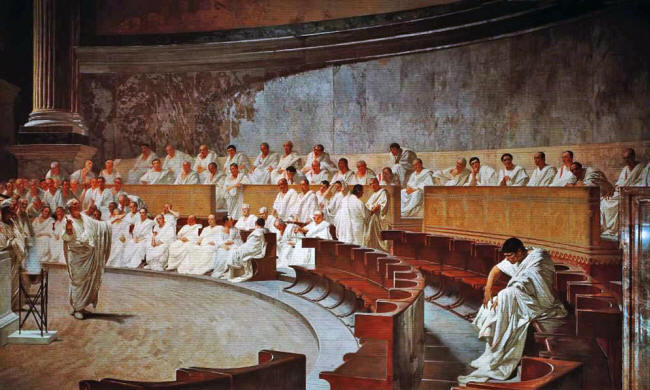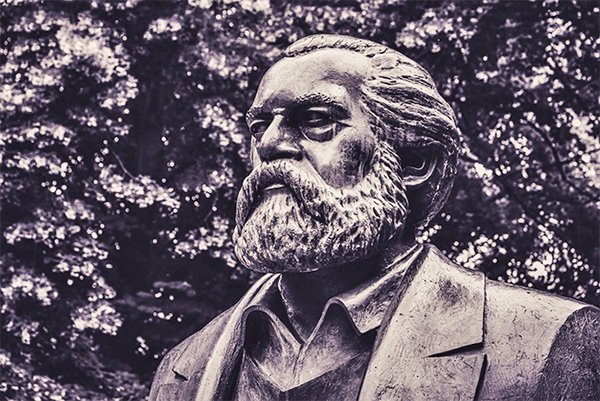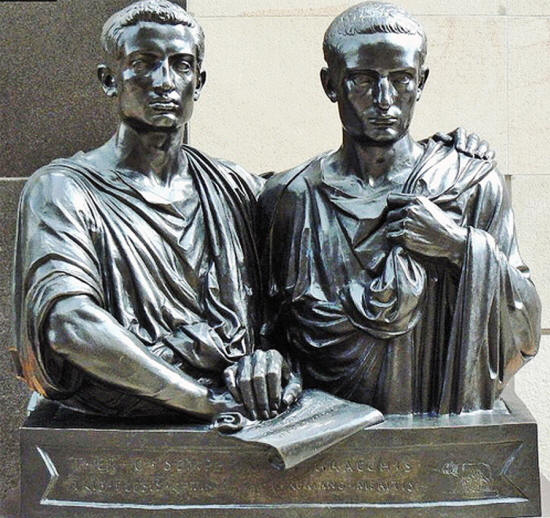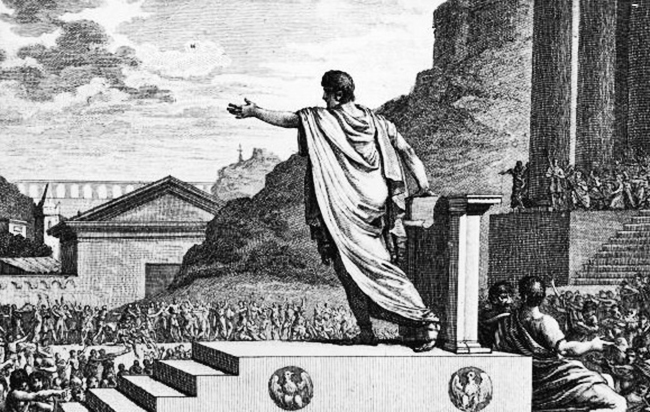|
from ClassicalWisdom Website
According to him, the rich and poor have been in a perpetual war throughout history. His philosophy gave birth to modern communism which went on to add another dimension in the social and international divide between people and governments since the twentieth century.
Marx gave what seemed to be valuable solutions to ending this struggle and achieve societal equality.
Roman society was much more successful than the modern communist and capitalist regimes as it incorporated both of these philosophies that often clashed with each other politically.
It was a healthier inclusion of the working class into the government.
It also made it infinitely more complex.
With more conquests, they got their hands on more assets and slaves. Slowly, it began to threaten the societal balance of Rome in a way never seen before in antiquity.
The rich would buy off the land from the peasant and employ their slaves to work on it.
It strained the economic condition of the Roman State as it would be forced to feed the unemployed mass of people.
Also, it posed a serious threat to military recruitment for the Republic as the individuals serving in its legions were supposed to own property.
The Gracchi brothers tried to redistribute the land and the rich, unsurprisingly, were not happy to hear the possibility of relinquishing their wealth.
It was an important power check on the wealthy class of Rome or the Roman Senate.
As time progressed, the social divide became wider and ultimately resulted in the downfall of the Republic itself and the creation of the Roman Empire.
and Gaius Gracchus
As the soldiers were recruited from the low-income class of the Republic, they started to heavily rely on their generals for securing land for them after their retirement. This meant that their loyalty would be to their generals instead of the Senate.
This made them willing to fight for their generals even against the other Roman armies.
However, the victor Sulla was still from the Optimates faction and believed in the supremacy of the Senate.
Things went back to the status quo after Sulla.
However, the second civil war between Julius Caesar and Pompey Magnus resulted in the irreversible chain of events that ensured the downfall of the Roman Republic.
It ensured the goodwill
of common people and helped them get their concerns heard by the
highest level of leadership.
Gaius Gracchus addressing the Plebeians.
The low-income class didn't rise against their wealthy counterparts in a revolution:
This led to the clash of Optimates and Populares throughout the late Republic period, which in turn led to the end of Senatorial dominance in Roman politics and the emergence of powerful emperors.
These emperors would work
for the middle-class to increase their popularity much more than
they would for the senate, even though the latter continued to
function as a political organ of the State.
|





